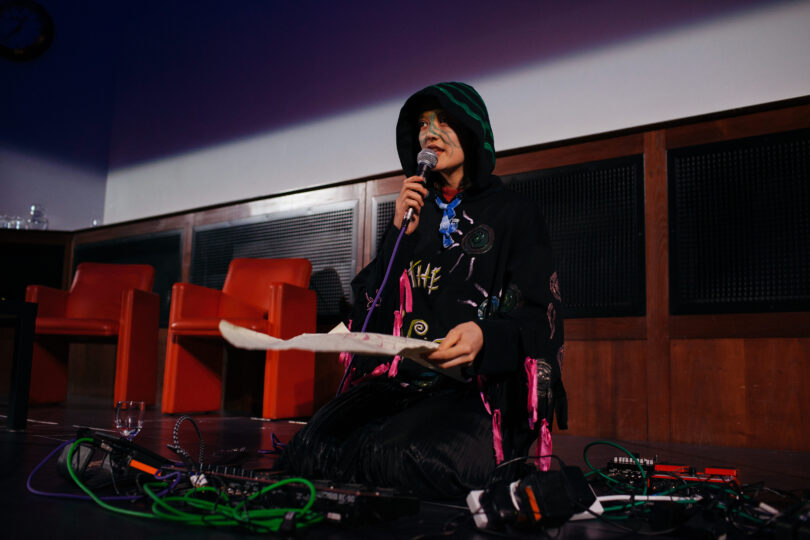- Posted on April 14th, 2020
Everything is forever until it is no more

Written by Yambe Tam, a young artist who volunteered with us at the We Make Tomorrow summit in Feb 2020.
Like many, I have been in self-isolation and reflecting on just how quickly life can change. Just a few weeks ago, I was volunteering at the summit We Make Tomorrow by Julie’s Bicycle – a massive public event at the Royal Geographical Society which, if scheduled for today, would undoubtedly be cancelled faster than the non-perishables are going at my local Sainsbury’s. The people who came that day all showed a desire for action against the climate scientists have been warning us about for decades. The sense of urgency, concern, and optimism came together in a feeling those of us who have been in this fight for years are familiar with: a determination and reticent hope that things might finally change as more people come to terms with the problems quickly advancing to our doorstep.
I suspect people working in the creative industries are more attuned to what is happening to our planet because they have a stronger than average sense of abstract thinking and empathy. It’s our job to be attuned to the shiftings of society and culture, and many of us have known for a while that a fundamental shift was coming. What surprises me is just how quickly this has happened. With the measures governments and individuals have taken to halt the global pandemic, it is doubtful we will go back to the way things were before. As Brian Eno said in the morning session of talks, “Everything is forever until it is no more.”
In the panel “Extracting Ourselves: Changing A System”, renegade economist Kate Raworth presented her theory of Doughnut Economics: the shift from an economic system based on the illogical assumption of infinite growth to one of balance. I would add that this is the natural rhythm of things whether we believe it or not: the difference is that once we consciously choose it, we are able to adapt to it, rather than being at the mercy of it as we are now.
It is not all bad news these days. The wildlife that live on the edges of our cities – mountain goats in Wales, boars in Barcelona, deer in Essex – are emerging from the shadows, reminding us how connected we are to nature. With less dining out and demand on seafood, fish stocks are being given a chance to recover. Pollution levels have dropped around China, California, and Italy to the extent that this is visible to NASA from outer space. The bats and pangolins in China are no doubt celebrating the ban on consumption of wildlife. Though playtime might be over once human activity starts up again, I wonder what lessons and practices we might keep to make this planet a healthier place for all species.
If there’s one thing that’s become clear from social distancing, it’s that an individual can in fact make a difference. The rapid spread of coronavirus has demonstrated how connected we are to each other across the globe. We have now seen how quickly and effectively people can be mobilised into action on a global scale. This has given me hope that the same can be done to combat the climate crisis. It may again come to the point where we have no other choice.
Those of us working in the cultural sector have the ability to shape the vision of what our society can be and where it is headed. Creative thinking allows us to see possibility where others see problems. It is more important than ever to use this strength to model the future and inspire others into action. We all have a part to play in shaping tomorrow.
Image: Ayesha Tan Jones performing at We Make Tomorrow: Credit: James Allan
We Make Tomorrow was run in partnership with the Arts Council England as part of the environmental sustainability programme.

